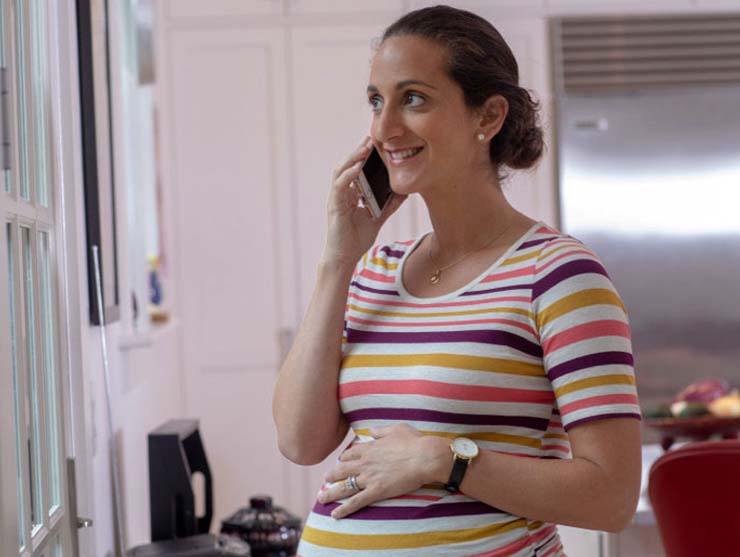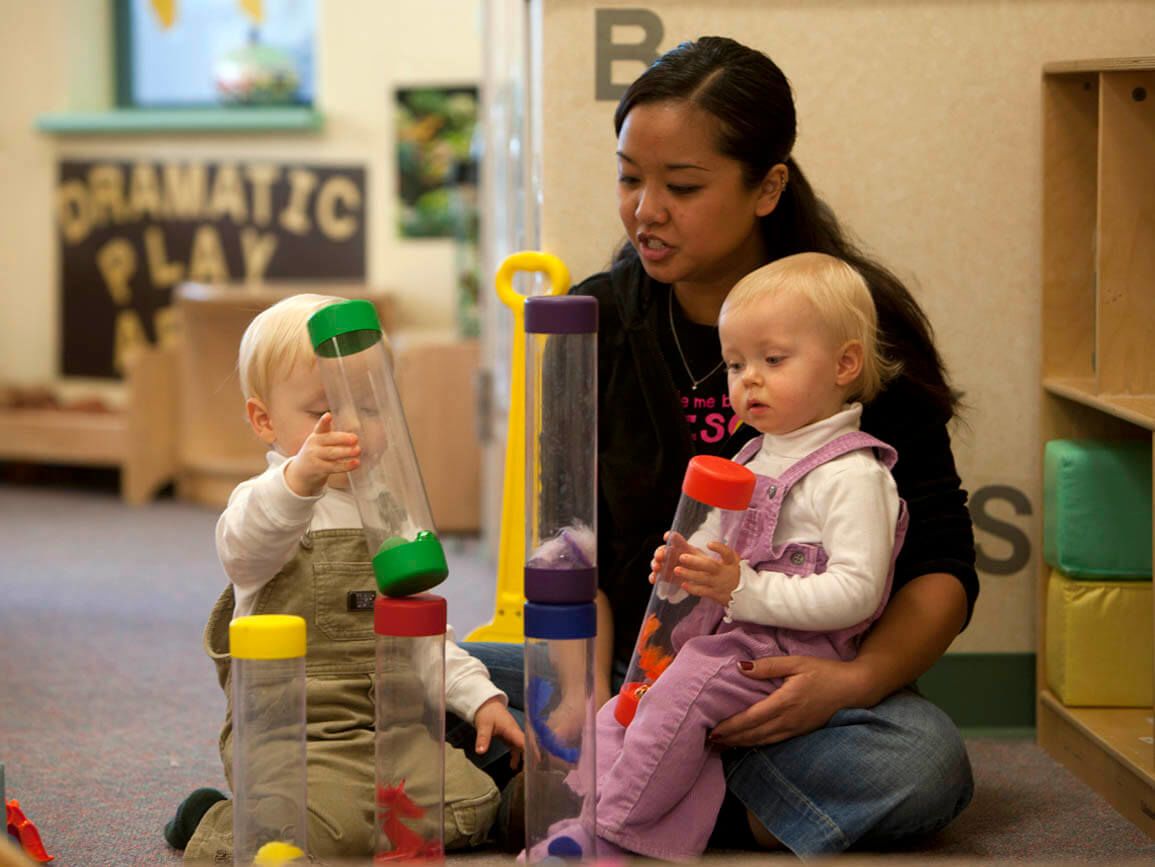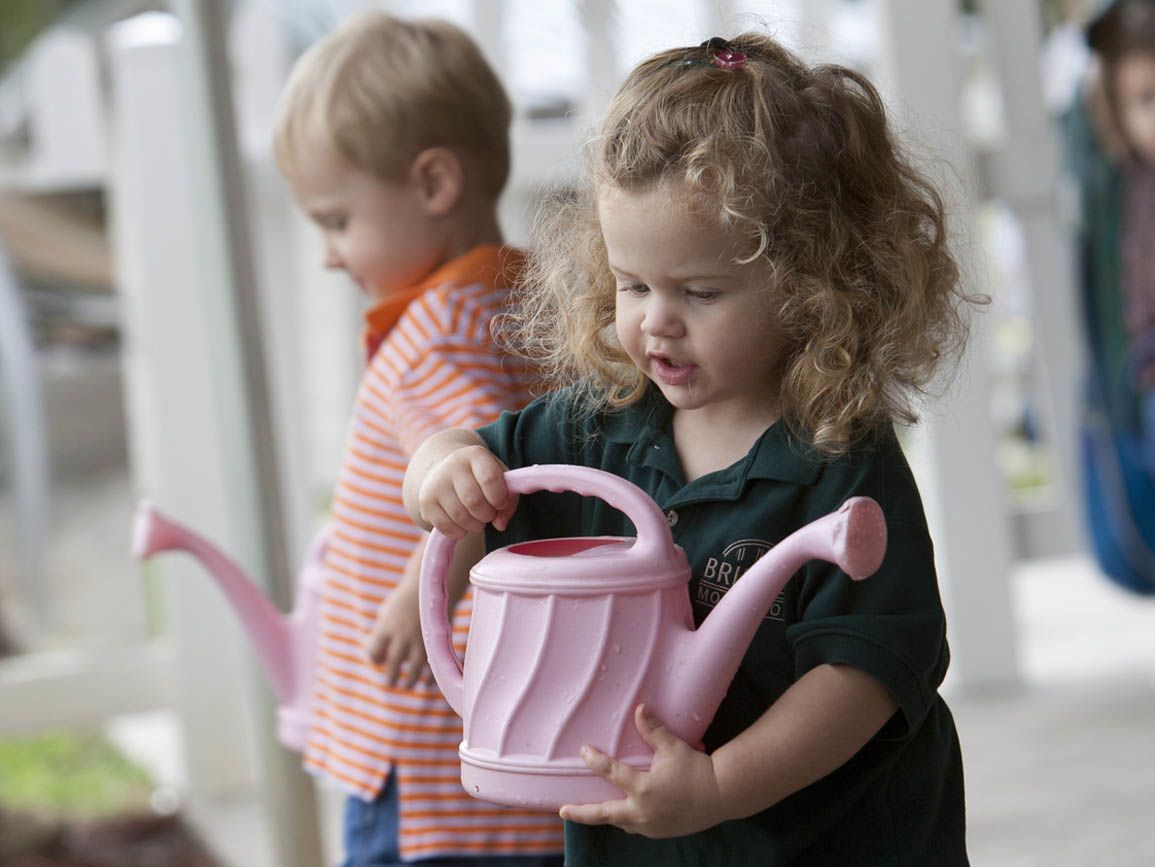Babies may enter the world with brains that appear unsophisticated, but they absorb and understand more than we realize.
Here are some facts about how babies learn and what you can do at home to encourage your baby’s brain development.
How babies think and learn
Learning for babies primarily occurs through the five senses and is deeply tied to interaction and observation. They acquire language by carefully listening to their caregivers talk, tuning into speech patterns, and practicing sounds. Their understanding of emotions grows by observing and mimicking caregivers’ facial expressions and slowly learning that there are words that match their feelings. Physical milestones, such as grasping objects and crawling, also play a vital role in cognitive development, enabling them to interact more deeply with their environment. With consistent, responsive caregiving and stimulating activities like reading, singing, and play, babies’ natural curiosity is nurtured, fostering their growth across all areas of development.
Activities to help your baby learn
Become inspired by Bright Horizons educators with activities that will create connection and help your baby build new skills.
- Language Sense: Babies as young as 8-months-old can distinguish patterns in their own language from background sounds. Get out a Treasure Basket and clearly name and label each object as you and your baby explore language together. Intentionally converse with your baby to demonstrate language as communication and to help continue acquire new language.
- Number Sense: Babies six months or younger notice the difference between a large group of objects or pictures and a smaller group (for example, the difference between five dots and 13 dots). Try the Ribbon Pull activity at home and watch your infant practice building focus and concentration skills. To continue fostering number sense, incorporate simple finger plays and songs such as '5 Little Ducks,' '5 Green and Speckled Frogs,' or 'The Ants Go Marching.' These interactive songs not only engage your baby but also help them recognize numbers.
- People Sense: Infant brains thrive from secure emotional attachments to caregivers, leading to the development of more advanced social-emotional skills through infancy and toddlerhood. Babies can practice identifying emotions from facial expressions with this Feelings Game, an essential part of how babies develop socially.
How adults can help babies develop
Watch and “tune in” to what babies are telling us. Our full human presence — paying attention to babies and talking about their interests — is critical. We need to slow down enough to observe babies, understand their interests, and note what they communicate. This attention directly impacts what babies think about and how they process their world.
Provide interesting materials for babies to explore and remember that an experience is even better when it is shared with another person. In other words, interesting materials alone are not enough—actively engage with your baby during these experiences to build relationships and promote development.
How Babies Learn: FAQs
Do babies have memories?
Yes, babies do form memories, but these are primarily implicit rather than explicit. Early on, they can recognize familiar faces and voices, which helps build their sense of security. Since working memory is a key part of executive function, supporting its development from an early age is essential.
How do babies communicate?
Nonverbal cues such as facial expressions and body language can give you hints to what your baby may be thinking and feeling. Babies also communicate through vocalizations, such as cooing and crying. As Rachel Robertson, Bright Horizons’ Chief Academic Officer, explains, “When children don't have the words, they tell you what they need and how they feel through their behavior. Listen closely.” You can also begin to assist your child with other forms of communication, such as infant sign language, long before verbal language develops.
How can I bond with my baby?
Building a bond with your baby plays a crucial role in social-emotional development. Early, positive interactions build trust, laying the foundation for relationship-building in the future. Understanding the key elements of bonding can help strengthen this connection.





